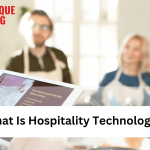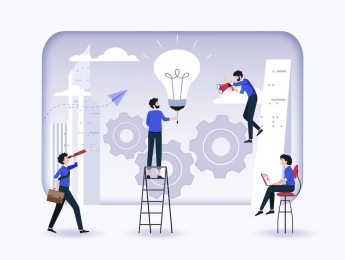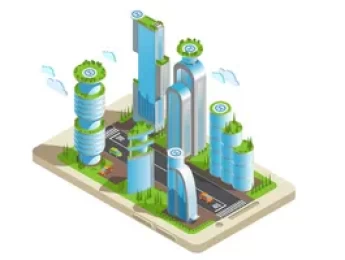The hospitality industry is being reshaped by smart technologies, and the Internet of Things (IoT) is leading this transformation. From automated check-ins to personalized room controls and intelligent energy systems, IoT empowers hotels and resorts to deliver seamless, efficient, and eco-friendly experiences. This course is designed to help hospitality professionals and technologists understand how to strategically plan, implement, and manage IoT solutions to improve performance and customer satisfaction.
Participants will explore real-world case studies, hands-on planning exercises, and emerging IoT applications in the hospitality context. The course also addresses essential considerations such as data security, system integration, legal frameworks, and ethical implementation. By the end of the course, attendees will gain the tools to confidently lead or support IoT initiatives within their hospitality organizations.
By completing this course, participants will be able to:
- Understand the role and impact of IoT in the hospitality industry.
- Identify operational and guest experience enhancements through IoT.
- Implement smart systems for resource efficiency (energy, water, HVAC).
- Leverage IoT to automate and personalize guest services.
- Apply strategies for securing IoT networks and data.
- Evaluate ethical, legal, and regulatory aspects of IoT in hospitality.
- Analyze upcoming trends and technologies shaping smart hospitality.
This course is ideal for:
- Hospitality executives and hotel managers.
- IT professionals and technical teams in hospitality.
- Operations and facility managers.
- Experience and guest services managers.
- Engineers and system integrators in tourism technology.
- Hospitality consultants and innovation strategists.
- Entrepreneurs developing smart tourism solutions.
- Sustainability and energy officers.
This course uses a blended and interactive format combining expert-led sessions, real-time discussions, and applied activities. Learners will work on real-world IoT scenarios in hospitality settings, assess smart system design, and evaluate case studies of successful IoT implementation. Through group exercises, simulations, and visual walkthroughs, participants will gain both the strategic perspective and the technical awareness required for deploying IoT solutions responsibly and effectively.
Day 5 of each course is reserved for a Q&A session, which may occur off-site. For 10-day courses, this also applies to day 10
Section 1: Foundations of IoT in Hospitality
- What is IoT? Core concepts and technologies.
- Evolution of IoT and its growing impact on hospitality operations.
- Key applications of IoT in hotels, resorts, and venues.
- Business benefits: automation, personalization, and cost savings.
- Challenges in adoption: complexity, cost, and staff readiness.
- IoT's influence on customer retention and profitability.
- Activity: Mapping potential IoT applications in your property.
Section 2: Smart Energy and Resource Management
- The role of IoT in reducing energy and water consumption.
- Smart meters, sensors, and automation for lighting and HVAC.
- Real-time monitoring tools and dashboards.
- Water management with IoT: leak detection, usage control.
- Linking energy-saving practices to sustainability goals.
- Case study: IoT-driven environmental savings in a hotel chain.
- Balancing comfort with conservation in guest environments.
Section 3: Enhancing the Guest Experience with IoT
- Personalizing guest services through smart devices.
- Smart room systems: temperature, lighting, entertainment, curtains.
- Touchless check-in, mobile room keys, and app-based concierge services.
- IoT-powered automation for room service, laundry, and parking.
- Guest profiling and behavior tracking (with privacy considerations).
- Using feedback loops and data to refine guest offerings.
- Case study: How smart hotel rooms improve satisfaction and efficiency.
Section 4: Securing IoT Systems in Hospitality
- Importance of cybersecurity in IoT-based environments.
- Identifying key components of secure IoT networks.
- Vulnerabilities in hospitality systems (Wi-Fi, connected devices, etc.).
- Methods to secure IoT: encryption, device management, access control.
- Staff training and response protocols for data breaches.
- Aligning with national and international data regulations (e.g., GDPR).
- Case study: Managing a security breach in a smart hotel system.
Section 5: Future Trends and Ethical Considerations
- Emerging IoT trends: AI integration, voice assistants, wearables.
- Legal and regulatory frameworks shaping IoT adoption.
- Ethical concerns: guest privacy, data usage, consent.
- Communicating digital upgrades to stakeholders and staff.
- Aligning IoT with brand values and service excellence.
- Integrating IoT with sustainability and smart city goals.
- Final reflections: planning your IoT roadmap.
Upon successful completion of this training course, delegates will be awarded a Holistique Training Certificate of Completion. For those who attend and complete the online training course, a Holistique Training e-Certificate will be provided.
Holistique Training Certificates are accredited by the British Accreditation Council (BAC) and The CPD Certification Service (CPD), and are certified under ISO 9001, ISO 21001, and ISO 29993 standards.
CPD credits for this course are granted by our Certificates and will be reflected on the Holistique Training Certificate of Completion. In accordance with the standards of The CPD Certification Service, one CPD credit is awarded per hour of course attendance. A maximum of 50 CPD credits can be claimed for any single course we currently offer.
- Course Code IND15 - 136
- Course Format Classroom, Online,
- Duration 5 days








